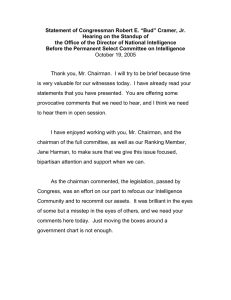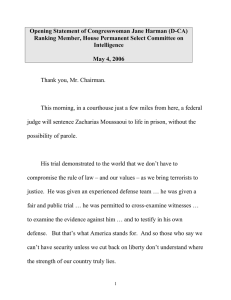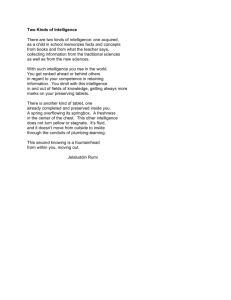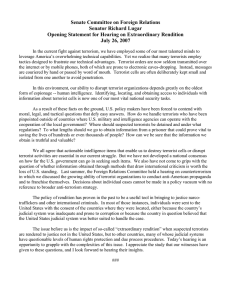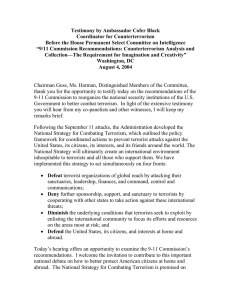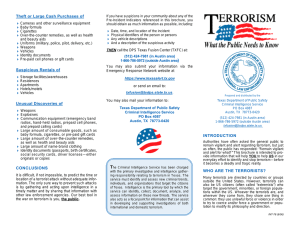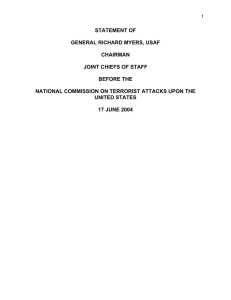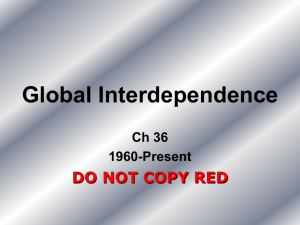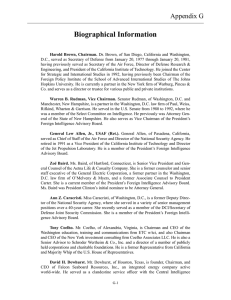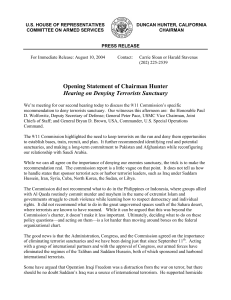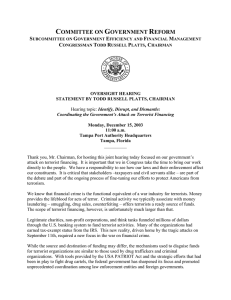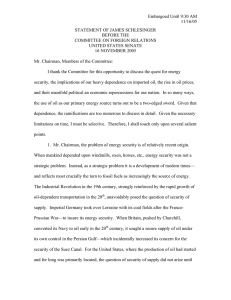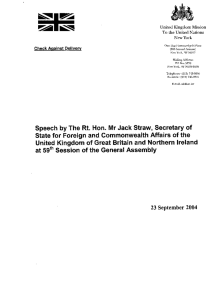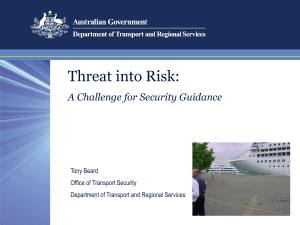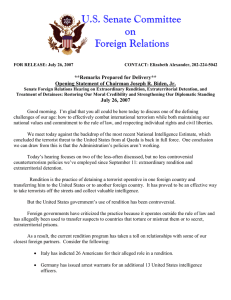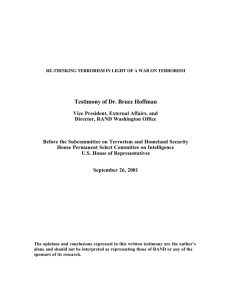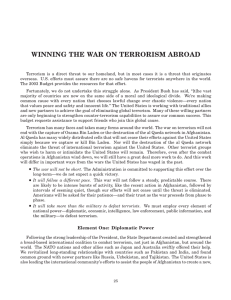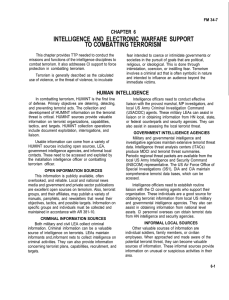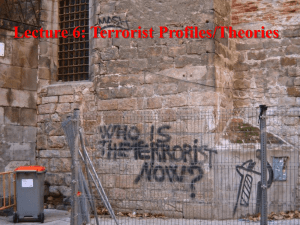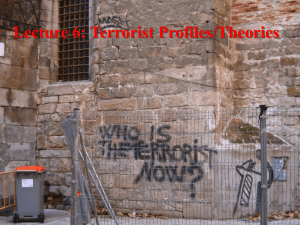U.S. HOUSE OF REPRESENTATIVES DUNCAN HUNTER, CALIFORNIA COMMITTEE ON ARMED SERVICES
advertisement
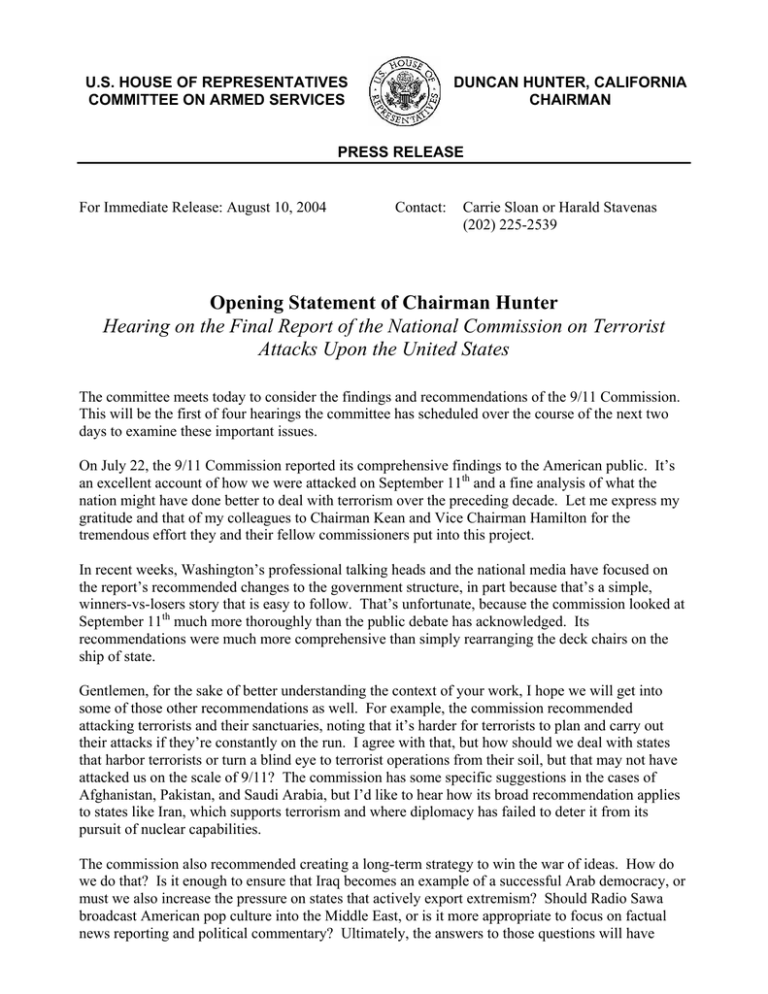
U.S. HOUSE OF REPRESENTATIVES COMMITTEE ON ARMED SERVICES DUNCAN HUNTER, CALIFORNIA CHAIRMAN PRESS RELEASE For Immediate Release: August 10, 2004 Contact: Carrie Sloan or Harald Stavenas (202) 225-2539 Opening Statement of Chairman Hunter Hearing on the Final Report of the National Commission on Terrorist Attacks Upon the United States The committee meets today to consider the findings and recommendations of the 9/11 Commission. This will be the first of four hearings the committee has scheduled over the course of the next two days to examine these important issues. On July 22, the 9/11 Commission reported its comprehensive findings to the American public. It’s an excellent account of how we were attacked on September 11th and a fine analysis of what the nation might have done better to deal with terrorism over the preceding decade. Let me express my gratitude and that of my colleagues to Chairman Kean and Vice Chairman Hamilton for the tremendous effort they and their fellow commissioners put into this project. In recent weeks, Washington’s professional talking heads and the national media have focused on the report’s recommended changes to the government structure, in part because that’s a simple, winners-vs-losers story that is easy to follow. That’s unfortunate, because the commission looked at September 11th much more thoroughly than the public debate has acknowledged. Its recommendations were much more comprehensive than simply rearranging the deck chairs on the ship of state. Gentlemen, for the sake of better understanding the context of your work, I hope we will get into some of those other recommendations as well. For example, the commission recommended attacking terrorists and their sanctuaries, noting that it’s harder for terrorists to plan and carry out their attacks if they’re constantly on the run. I agree with that, but how should we deal with states that harbor terrorists or turn a blind eye to terrorist operations from their soil, but that may not have attacked us on the scale of 9/11? The commission has some specific suggestions in the cases of Afghanistan, Pakistan, and Saudi Arabia, but I’d like to hear how its broad recommendation applies to states like Iran, which supports terrorism and where diplomacy has failed to deter it from its pursuit of nuclear capabilities. The commission also recommended creating a long-term strategy to win the war of ideas. How do we do that? Is it enough to ensure that Iraq becomes an example of a successful Arab democracy, or must we also increase the pressure on states that actively export extremism? Should Radio Sawa broadcast American pop culture into the Middle East, or is it more appropriate to focus on factual news reporting and political commentary? Ultimately, the answers to those questions will have more to do with winning the war on terror than deciding whether or not the National Intelligence Director is a term employee inside or outside the Executive Office of the President. This doesn’t mean that we can or should downplay the commission’s organizational recommendations. The report proposes to break a lot of rice bowls, which can sometimes be a productive activity in Washington. More importantly, it helps us focus on long-standing problems in the intelligence community and possible solutions. The President’s support for the creation of the National Counter-Terrorism Center and a National Intelligence Director, I believe, will eventually lead to improved cooperation and coordination among different agencies. But, we also may want to require senior intelligence officials to rotate through other agencies as a precondition for promotion in their home agency. Alternatively, we might rebuild the educational path for intelligence professionals. Both steps did more to break down stovepipes and promote “jointness” in the military than simply re-wiring organizational charts. Goldwater-Nichols succeeded by incentivizing cross-service cooperation and promoting the unity of command, not by adding layers of decision-makers or making the chain of command more convoluted. The point is that there are multiple dimensions to the problem that are worthy of further consideration and I look forward to working with the President, my colleagues in the House, and the Senate as we sort through these ideas and move out on a proactive agenda. ### http://armedservices.house.gov/
